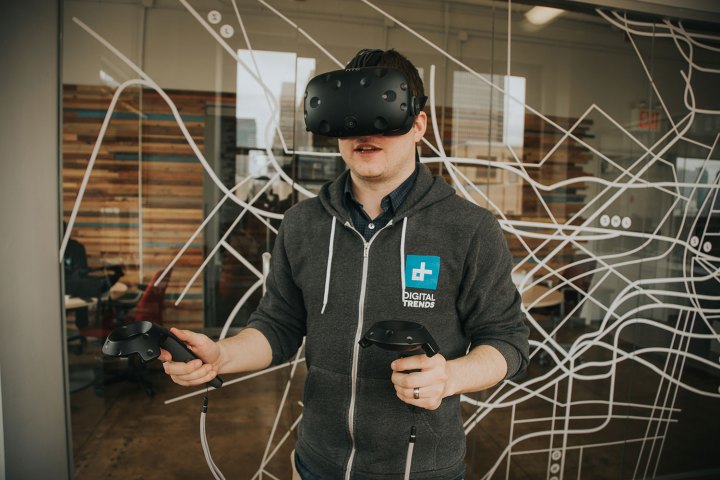
Figures released by the UBM Game Network state that 49 percent of developers polled are working on their current VR project with the Vive in mind, according to a report from UBM Game Network. Meanwhile, just 43 percent and writing software for use with the Oculus Rift.
It seems that this discrepancy could grow even larger moving forward. When questioned about their next project, almost 35 percent stated that it was in development for the Vive, while just over 23 percent planned to release the game for the Rift.
One of the biggest differences between the two headsets is the Vive’s emphasis on room-scale experiences, which might put the hardware a nose ahead of its biggest competitor. Oculus recently expressed doubts about this form of VR, but there was some suggestion that the company’s stance could change in the future.
The backing of Valve and collaborations with major creators like Lucasfilm has certainly allowed the Vive to cement itself as a VR superpower. However, Oculus has ample support to remain competitive, given its relationship with Facebook — the social media giant’s recently announced gaming platform could well be a difference maker.
Meanwhile, there’s reason to believe that Samsung Gear VR will struggle to compete with the headsets at the top of the tree. Almost 34 percent of the developers polled are creating content for the hardware right now, but only 14 percent plan to target Gear VR on their next project.


